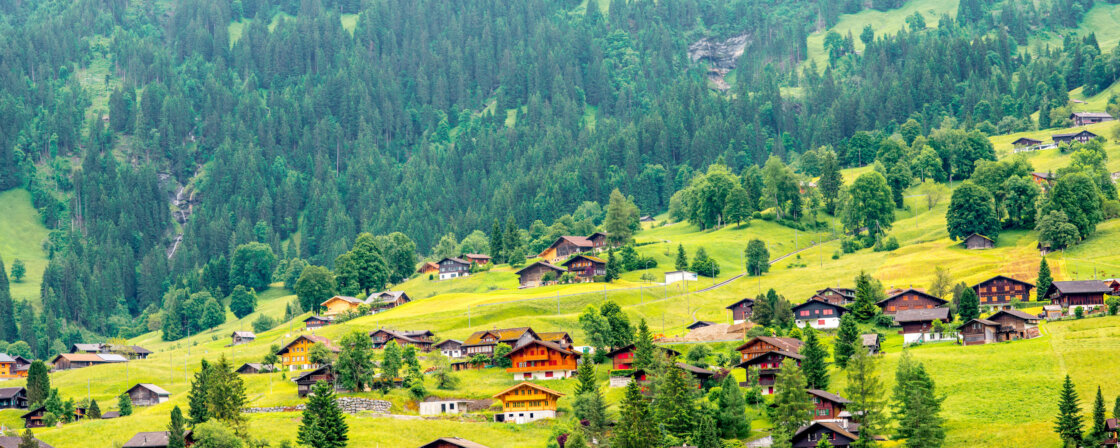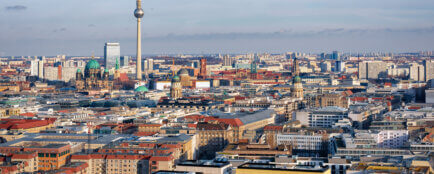Read also parts 1 and 2 of this series:
In Part 1, we look at what the purpose of the minimum wage actually is, and what employee rights you may encounter. Then we’ll look at specific areas – Europe, the European Union and Germany.
In the second part we will look at our neighbour Austria, which attracts thousands of Czech workers. But we will also look at the United States and its virtually non-existent employee rights. Finally, we’ll give you advice on what to look out for when looking for work abroad.
Chapters of the article
Minimum wage – Slovakia
In Slovakia, the minimum wage is set by the state. It was increased in 2025 and currently stands at EUR 816 per month and EUR 4.69 per hour. However, the minimum wage in Slovakia still has different levels depending on the difficulty of the professions. Specifically, there are six grades:
- Grade: This includes basic handling and preparatory work that follows certain procedures or instructions from a supervisor (e.g. cleaning worker, production operator). The minimum wage is €816.
- Grade: This includes routine professional work or work with material responsibility. There are also simple craft activities and work in the health sector (e.g. clerical worker, sales clerk). The minimum wage is EUR 932.
- Grade: This includes creative craft work, work with responsibility for the health of others and work requiring physical effort (e.g. nurse). The minimum wage is €1048.
- Grade: This includes jobs requiring increased mental effort, jobs providing health care, managerial and supervisory positions (e.g. manager). The minimum wage is EUR 1 164.
- Grade: This includes conceptually creative and methodical jobs requiring increased mental stamina and jobs with extremely demanding processes where complex procedures must be followed (e.g. production manager, general practitioner). The minimum wage is EUR 1 280.
- Grade: This includes creative work that requires a creative and individual approach, work with a high level of responsibility and work with a potentially significant impact on the company (e.g. Managing Director, CEO). The minimum salary is EUR 1 396.
Are you solving a similar problem?
Have you found a new job and are about to sign your employment contract?
Have it checked by an attorney. This will make sure you know what you’re signing and avoid potential unpleasant surprises.
I want a contract check
- When you order, you know what you will get and how much it will cost.
- We handle everything online or in person at one of our 6 offices.
- We handle 8 out of 10 requests within 2 working days.
- We have specialists for every field of law.
Other employee rights
Employee rights in Slovakia are very similar to those in the Czech Republic. Working hours in Slovakia are limited to 48 hours per week. However, the standard working week is 40 hours. Overtime is allowed only in special cases with a cap of 250 hours per year. For overtime work, the employee is entitled to an additional payment of at least 25% of average earnings or 35% for hazardous occupations. Employees may take compensatory time off in lieu of the additional payment.
The probationary period may be a maximum of 3 months or 6 months for managers or members of statutory bodies. Surcharges are payable for work at night, on public holidays or at weekends and the minimum amount is calculated on the current minimum wage or the average earnings of the employee.
Tip for article
Tip: The probationary period is the time when the employer checks whether the person is really suitable for the position and when the employee finds out whether the position really suits him/her. Learn how it works in the event of illness or leave during the probationary period.
You are entitled to 20 days’ holiday a year , or 25 days’ holiday if you are over 33 or care for a child under 18. You are entitled to holiday after working 60 days. There is also an additional one week’s leave for people working underground or doing particularly difficult or hazardous work. The length of maternity leave depends on various factors, but it is usually 34 weeks (minimum 28 weeks and maximum 43 weeks). Parental leave lasts until the child reaches the age of three.
How to work in Slovakia
You do not need a special work permit or residence permit to work in Slovakia. All you need is registration with the Ministry of Labour, Social Affairs and Family of the Slovak Republic. If you are planning a stay of more than 90 days, you must notify the Foreigners’ Police no later than 30 days after your arrival.
Tip for article
Tip: Want to work abroad as a freelancer? Then read on to find out what it’s like to be able to use your trade in Germany or Slovakia and what you need to do to do so.
Minimum wage – Switzerland
There is no minimum wage in Switzerland. At least not by the state and uniformly. Switzerland is a federation and therefore the minimum wage varies from canton to canton (for example, in Geneva the minimum monthly wage is CHF 4,455). But there is no minimum at national level.
Other employee rights
The length of working hours is determined by collective agreements, but most often ranges between 40 and 44 hours per week. Overtime takes two forms:
- Extra work: It is allowed without a serious reason, but is limited to a maximum of 2 hours per day, 170 hours per year (for a 45-hour week) or 140 hours (for a 50-hour week).
- Classical overtime: It is also allowed without serious reason and it is the time that exceeds the sum of classical working hours and extra work. The overtime premium is an additional 25% on top of average earnings.
There are also extra payments for night work (night work in Switzerland means working between 11 pm and 6 am). With a few exceptions, employees working at night are entitled to a 25% supplement to their average earnings. If the employee works regularly at night (e.g. shifts or night work only), he is also entitled to compensatory time off equal to 10% of the length of the night work period.
Employees are entitled to four weeks of paid leave per year (five weeks for people under 20). Maternity leave lasts 14 weeks with the possibility of extending it by two weeks (but it is no longer unpaid leave). Leave for the other parent is two weeks.
Tip for article
Tip: Planning to quit your job? We’ll protect your rights – with us, you can be sure your notice will be valid and you won’t lose anything you’re entitled to under your employment contract. We’ll help you sort it all out in just two days, conveniently and online.
What it’s like to work in Switzerland
Switzerland is not a member of the European Union, but it is a member of the Schengen Areaand the European Free Trade Association, so it is not difficult for EU citizens to find work here. If you are planning to work in Switzerland for less than three months, you do not need a residence permit. Otherwise, a residence permit is already needed and you need to get one before you start work.
Highest and lowest minimum wages in the world
Countries with high costs of living and robust social security systems have the highest minimum wages. Countries with a high legal minimum wage relative to the average wage include:
- Australia: Australia has one of the highest minimum wages in the world, which is adjusted annually. The high cost of living and strong trade unions play a major role.
- Luxembourg: Luxembourg is known for its high standard of living. This is also linked to the fact that it boasts one of the highest minimum wages. This is largely due to its small population and prosperous economy.
On the other hand, countries with the lowest minimum wages tend to have lower living costs and overall very different economic structures. These include, for example:
- Countries in Sub-Saharan Africa: Many countries in this region have very low minimum wages, often due to factors such as widespread poverty, lack of strong trade unions and poor economic health.
- Southeast Asia: Some countries in Southeast Asia have low minimum wages compared to Western countries. This can be attributed to factors such as a lower cost of living and few available positions for unskilled people.
A specific group is those countries that have a low minimum wage but a high cost of living. In these countries, people often struggle to cover the most basic costs on their salaries, creating a gap between rich and poor. Examples of these countries include:
- The United States of America: The United States has a really high cost of living in certain cities and regions. However, the federal minimum wage is much lower than in other similarly economically advanced countries, on a purchasing power parity basis.
- Japan: In Japan, the cost of living is really high, especially in big cities like Tokyo. However, the minimum wage is low compared to other developed countries.
Summary
Minimum wages remain an important instrument for protecting low-income workers in European countries, but their form and level vary considerably. While Slovakia sets a minimum wage by law and divides it into six levels according to the intensity of the work, Switzerland has a minimum wage only in certain cantons, with Geneva’s being one of the highest in Europe. While the basic minimum wage in Slovakia is €816 per month from 2025, in Switzerland, in the canton of Geneva, the gross monthly income is based on a minimum hourly wage of CHF 24.48, i.e. approximately CHF 4,455 per month for a 42-hour week.
From the perspective of both employee and employer, it is therefore important not only to know the minimum wage but also to understand how it works in practice in a particular country – how it is determined, whether it is graduated according to the type of work and what other costs employment entails. If you are considering working abroad or want to employ a worker from abroad, it is always advisable to check the current rules and wage levels directly in the destination country or region.
Read also parts 1 and 2 of this series:
In Part 1, we look at what the purpose of the minimum wage actually is, and what employee rights you may encounter. Then we’ll look at specific areas – Europe, the European Union and Germany.
In the second part we will look at our neighbour Austria, which attracts thousands of Czech workers. But we will also look at the United States and its virtually non-existent employee rights. Finally, we’ll give you advice on what to look out for when looking for work abroad.




